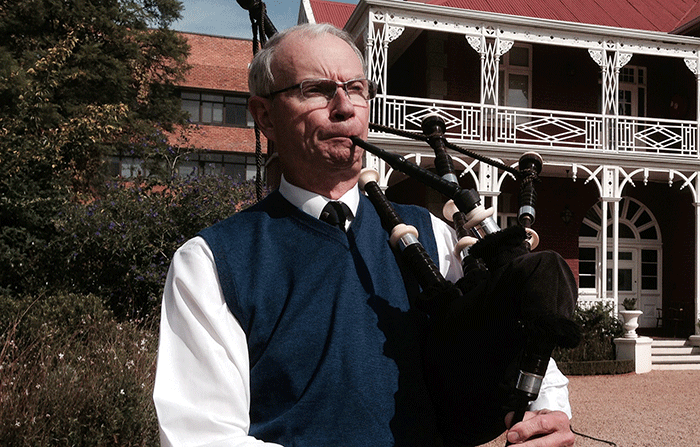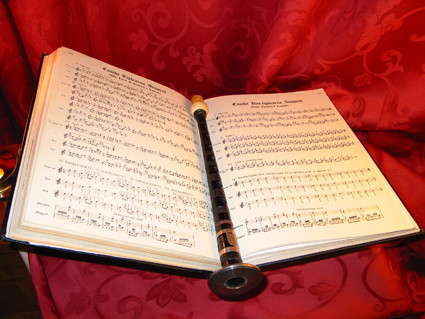
Piobaireachd or Ceòl Mòr, often thought of as the classical music of the Scots Highland Bagpipe, was for centuries passed from master to pupil by chanting the tunes to one another, writes Pat Terry.
From about the year 1800, attempts were made to find suitable variations on conventional staff notation to record the music for posterity. One of the more highly regarded of these attempts was published in the 1960s by Dr Roderick Ross, Edinburgh, under the title ‘Binneas is Boreraig’.
By not adhering to fixed time signatures, a major aim of Dr Ross was to try to capture the nuances of performance by Malcolm Ross Macpherson, one of the top piobaireachd players of his day.
As an accompaniment to the original books, recordings of extracts of the tunes performed by Malcolm were also published. These can be found on the Piobaireachd Society website.
‘Binneas is Boreraig’ employed notational devices that some pipers familiar with the notation found in other collections of piobaireachd might find strange.
In 2022, my brother Chris Terry (a pupil of John MacFadyen and Braemar Gold Medal winner in 1985) set out to transcribe the 112 ‘BiB’ scores into a more familiar form. It soon became apparent that it would be worth clarifying the scores, correcting simple mistakes, and pointing out the differences between the Ross/Macpherson settings and those found in other collections.

In this revision, entitled ‘BiB-T’ for short, Chris was aided by myself (a pupil of James Campbell of Kilberry). The outcome has been a collection of some 214 pages of annotated scores for 113 piobaireachds, each tune written on a five line stave and expanded to avoid the abbreviations in BiB. In addition there is an explanatory introduction, and close on 300 individual footnotes to the scores.
By way of illustration, consider the well-known Lament for MacSwan of Roaig, one of the set tunes for competition in 2024. Here is the ground in the original Binneas:

And now the BiB-T version:

Having introduced this project to the piobaireachd community, we would be grateful if you could give us your reaction. Please email enquiries, suggestions and comments to Chris at
christerry@mweb.co.za We are currently exploring costs with publishers and distributors but hope the book will be available for purchase in the near future.



















